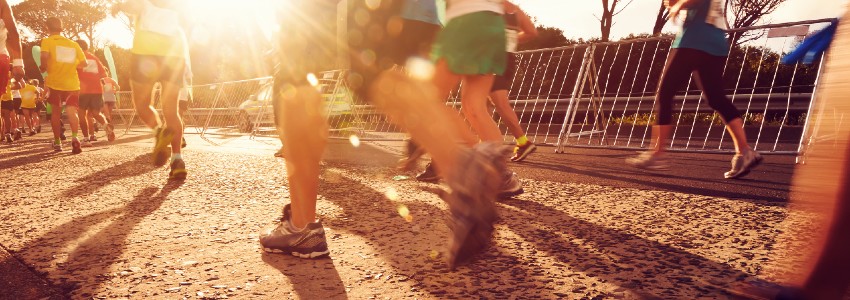
If you are an athletic vegan striving for optimum performance, good nutrition and effective training can help you to get there. A balanced and varied diet is the foundation of sports nutrition. As a starting point, check out our nutrition overview, featuring general tips about getting the most out of a vegan diet.
Meeting energy needs
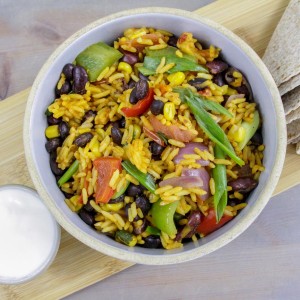
The majority of the energy in your diet should come from carbohydrate. If your daily routine is demanding, eat regularly throughout the day, including carbohydrate-rich foods like oats, potato, brown rice, wholewheat noodles and pasta, wholemeal bread and fruit. It is also a good idea to include some energy-dense foods, such houmous, peanut butter, avocado, dried fruit, nuts and seeds.
If your appetite is limited, opting for some white pasta and rice will help to make your diet less bulky. It may also be helpful to make a smoothie to serve with one of your meals by blending carbohydrate-rich fruits, such as banana and mango or blueberries
If you enjoy baking, why not try making some oat and raisin cookies or fruit scones?
Building blocks
Athletic people need extra protein to maintain and develop their muscles. The British Dietetic Association provides the following information in their sport and exercise fact sheet:
Strength athletes...have higher protein requirements (1.2-2g per kg body weight per day) than endurance athletes (1.2-1.8g per kg body weight per day) who have higher requirements than the general sedentary population (0.8-1.0g per kg bodyweight per day).
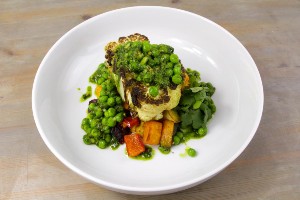
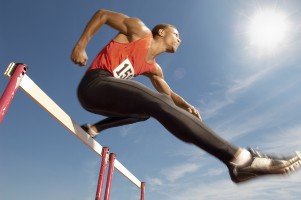
Athletes competing in a particular weight category or an aesthetic-focused sport may find it difficult to meet these higher protein requirements without exceeding their daily energy needs. If this is the case for you, try integrating into your diet some of the higher protein foods recommended for athletes with small appetites. You may also want to try getting more of your nutrition from ‘double-duty foods’ – foods that contain good quality protein together with a useful amount of another nutrient such as carbohydrate or fat. Good examples include beans, lentils, peas, wild rice, buckwheat, amaranth, quinoa, popped corn and hemp seeds.
If your appetite is good, it is best to focus on obtaining protein from food sources rather than using supplements like protein powders.
Workout fuel and refuelling
It is important to fuel up around workouts, otherwise you will not be able to push yourself. You may find that it works to have a light meal two or three hours before exercise and then eat again as soon as possible afterwards. Carbohydrate-rich options containing moderate amounts of protein and lower amounts of fat are ideal before intense training. Here are a few examples:
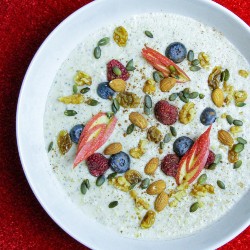
Fruit with either porridge containing fortified soya milk or a houmous sandwich
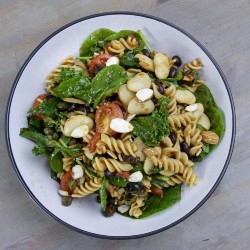
A pasta dish that incorporates beans, peas or lentils
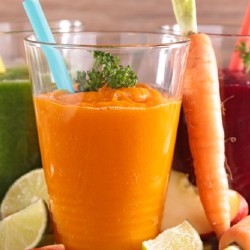
If you need a liquid option, try a smoothie containing fruit, oats and fortified plant milk based on soya or split peas.
Immediately before sport and during lengthy activities, dried fruit and sugar-rich foods and drinks can be useful when other forms of carbohydrate are not tolerated. Options include sports drinks, fruit juice or smoothies, gels, fruit purees or fruit-based sweets. However, remember to wash them down with water and look after your teeth.
Other nutrients to consider
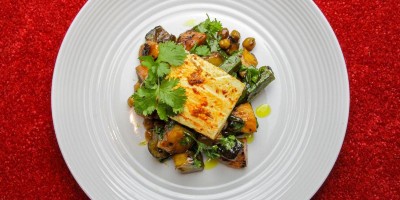
Iron
Sports nutrition places emphasis on iron too, so check that you are eating plenty of iron-rich foods throughout the day. Eating these foods with a source of vitamin C and cooking meals in a cast iron pan can help to optimise iron status.
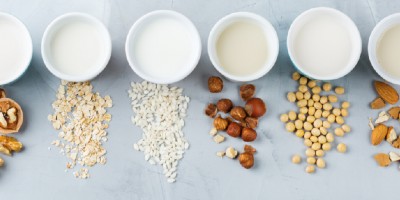
Calcium
If you are active, hitting your calcium target is very important because it can help to prevent injuries by keeping your bones strong and healthy. In order to optimise your calcium intake, make sure that your daily diet includes foods fortified with this mineral, as well as other foods that contain useful amounts.
At mealtimes, you can boost iron absorption by including a rich source of vitamin C, e.g tofu stir-fry with broccoli, bean chilli with bell pepper, chickpea curry with pineapple.
Hydration
Drinking plenty of fluid is also important for both performance and feeling your best from day to day. Water is an ideal option unless you are going to be training for more than 60–90 minutes. In this situation, you may benefit from a drink containing carbohydrate and electrolytes. This will help you to refuel and replenish electrolytes lost in sweat. Here are a couple of recipes for sports drinks that you can make at home:
800ml water
+
200ml full-sugar fruit squash
+
pinch of salt
250ml water
+
250ml fruit juice
+
pinch of salt
Professional support
If you require expert support with optimising your nutrition and performance, please consider consulting someone on the Sport and Exercise Nutrition Register.
These are general guidelines about nutrition. If you have concerns about your diet, please talk to your doctor about seeing a dietitian.
Thanks to Dietitian Alina Petre MSc RD from Veggies & More for her expertise and support.
